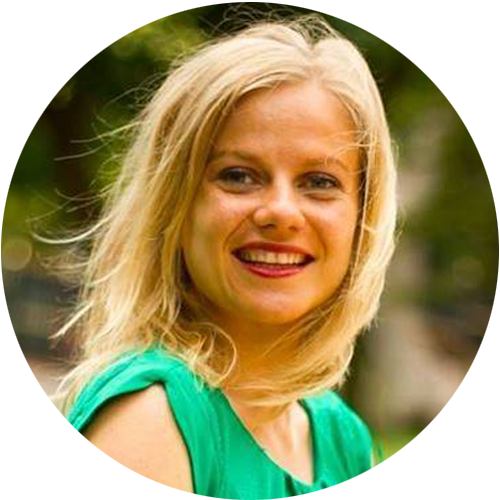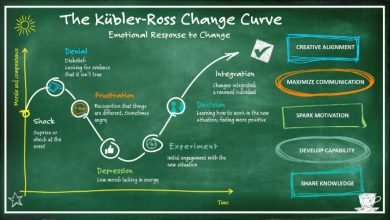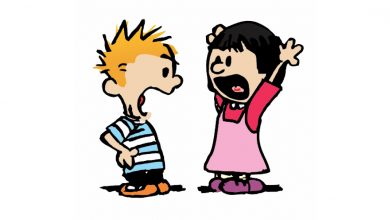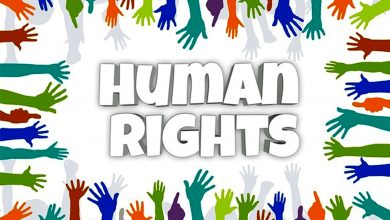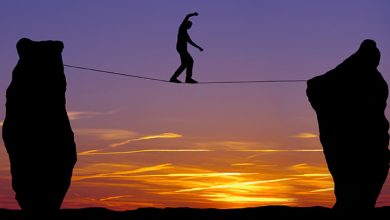Discovering who you really are
We often hear the phrase “just be yourself”. And yet for many of us implementing this phrase is quite a bit harder than it sounds. Throughout our lives we have been influenced by so many factors, including parents, teachers, groups we have been a part of, government, news, advertisements, friends, boyfriends/girlfriends, husbands/wives, relatives, children and any other person or entity that we have been involved with for the short or the long term. Then as we go about our lives and make decisions that we think are our own, more often than not they are heavily influenced by all of the above-mentioned actors, including when those actors are no longer a part of our lives. Therefore, understanding who you are and making decisions according to your true self requires a process of self-discovery, perhaps even unlearning certain things that are no longer serving you. This article gives some hints of where we can start that process and certain areas of our lives that we can look at and check if they align with our true selves.

Why did I choose this tool? When it comes to personal development, it is very common to see certain phrases or “commands” if you will. “Be yourself”, “have integrity”, “love yourself”, etc. While we may not disagree with these phrases and even find them valid, there is not as much out there about how you can practically go about doing or being these things. In this case, being told the above-mentioned phrases can just lead to frustration and disillusionment, knowing what we “should be” but not having a clue about how to get there, or even where to start looking. This is why I have dedicated so much of my time and energy to creating material that is practical and applicable by anyone, rather than continuing to paint the picture of how we all “should be”.
How does this apply to being a trainer? The indicator that this article is based on is “Encourages exploring their own identity and deal with the resulting emotional potential”. Unless we have thoroughly explored our own identity and seen how difficult and yet how rewarding it can be, we will have a very hard time supporting participants to do so.
“As a counselor, I can only take you as far as I have been willing to go in my own life.” – Counselor’s Creed point 6
Main content:
“To know thyself is the beginning of wisdom.” – Socrates
Although we may agree with this quote and find it important to know ourselves, it doesn’t mean that any of us have necessarily been given the time and the resources to really explore who we are and what we want. And yet this understanding is not only crucial to our own happiness and fulfillment, but it is essential also for understanding others and for forming good, authentic relationships.
Here are 6 places that you can look if you are in the process (or would like to begin the process) of “finding yourself”.
Disclaimer: “Finding yourself” is not always as lovely and exciting as it sounds. It can also include confusion, frustration, uncertainty, and perhaps the sense that everything is crumbling around you. If you realize that what you are doing, who you are doing it with and how you’re behaving doesn’t represent your true self, it can be very disconcerting and you may go through a period of change and upheaval. As someone who has been through this process, I can tell you that although many aspects of it aren’t easy, it is 100% worth it when you come out on the other side. You become more stable, confident, happy, and more capable of giving and receiving love. Anything you build while not being your true self, whether it’s a relationship, a project, or a company, will eventually fall apart because it’s not set on a solid foundation. Only what is built by your true self has a chance to last for the long haul.
In addition, here are some more benefits you get just from getting to know yourself better:
Happiness: For me, the very definition of happiness is “doing what your true self wants”. Anything else, no matter how glorious it may seem to others, will not actually satisfy you. And the beauty of it is, many times the desires of the true self are very simple and can often be much easier to reach then the desires of the “ego” and “false self”.
Less inner conflict (perhaps eventually none): When you are doing what your true self wants, there is no inner conflict. There may be more conflict with the outside world or other people and their expectations of you, but when you know yourself you can handle those. It’s the inner conflict that has the potential to take away your drive, motivation, and desire to move forward. If you are clear on the inside, the outside will adjust accordingly.
Better decision making: Most of the time when we struggle to make decisions, we are either more worried about others than about what we truly want, or we actually have no clue what we really want. In either case, discovering who you really are and what you want will make decision-making processes incredibly easier. It’s like having your own innate compass that always points towards your true north.
Self-control: Self-control is easier when you know yourself for 2 reasons. The first is that self-control works best when it’s not about self-control at all. How does this work? Well, you’ve probably heard many stories (I certainly have) about someone who always wanted to stop smoking, and it never worked. Then suddenly when something major happened in their life (like getting pregnant or perhaps falling in love) they could stop with hardly any effort? Knowing who you are and going for what you really want allows other less important or even harmful things to just fall away naturally. The second reason that knowing yourself helps with self-control is that you know what triggers certain kinds of behavior in you and you can avoid the triggers of behaviors you don’t want (ex: feeling bored) while going towards things that trigger you in the direction you want to go (ex: feeling inspired).
Resistance to social pressure: When you know who you really are, you are much less likely to be swayed by other people’s opinions and even criticism of you. Knowing yourself brings a whole other level of stability that is much harder for others to mess with, even if you still spend time interacting with them and listening to them. On the flip side, not knowing yourself makes you vulnerable to being swayed by any wave that crosses your path.
Tolerance and understanding of others: Knowing yourself helps you to know (understand) other people. We are all made of the same basic material when it comes to our core needs and the emotions that we are capable of having. So by understanding yourself, what makes you struggle, what makes you happy, what makes you sad, what makes you angry, you are well on your way to understanding these emotions in others and what can bring them about.
Vitality and pleasure: Nothing will make you feel more alive than being and doing what your true self wants you to be and do. Nothing is more exhausting then continually trying to live up to other people’s expectations and trying to be something that you are not. Two people can do the exact same thing, but for one it will be exhausting and draining and for the other, it will be energizing and exciting. The difference between these 2 is likely that for one it is aligned with their true self, and for the other it isn’t.
Now that we’ve gone over why it matters, let’s get to how you can go about discovering your true self. What are your “VITAL Signs”, as Meg Selig describes it in her article on “Psychology Today”?
“The capital letters in “VITAL Signs” form an acronym for the six building blocks of the self, or VITALS, for short. The letters stand for Values, Interests, Temperament, Around-the-Clock, Life Mission and Goals, and Strengths/Skills.”
V= Values
Knowing your values can keep you motivated even when the going gets rough, and can also guide you in being able to make decisions swiftly about what to do and what not to do. Most of us will already have several values within, but the process of making them clear to ourselves makes it more likely that we will act according to them. Clarity is power. Here is a list of values to get you thinking. My suggestion would be to choose only 5 main ones and do your utmost not to go against them. If you have too many values it is still likely you will end up confused or have them conflict with each other. Also, it’s ok if your most important values change over time. Just do the process again so that you are crystal clear on what are your current most important values.
I = Interests
“Interests” would include everything that naturally captures your attention, that draws you in, that motivates you to do something or learn about it. Something you are naturally interested in will effortlessly draw in your focus, and these interests provide vital clues as to what your true self really wants. If it’s extreme sports, it can mean your true self is craving adventure and pushing the boundaries of what is possible. If it’s comforting and helping other people, it can mean your true self is craving connection and the sense of contribution. Just remember that whatever you’re interested in is not actually what you crave. What you really crave is the feeling that that thing will give you, and usually that feeling can be found in a wide range of activities and experiences not only in one. This gives you more flexibility and choice, making it easier for you to make yourself happy.
T = Temperament
What is your temperament? Do you thrive more in social settings with lots of other people, thus being more of an extrovert in nature? Or are you happier accomplishing tasks and just spending time on your own, with the company of your own thoughts, books or music? Do you like to plan everything in advance, including your holiday activities? Or would you rather just take things as they come and “go with the flow”? Do you prefer it when someone else defines what you should do and you follow it in detail, or do you like to create your own path? All of these things can help you to make decisions and take actions that are aligned with your true self, rather than trying to force yourself into something that is not really in your nature. In some cases, you may be both. For instance, when I took a test to understand if I was an introvert or an extrovert it turned out I was 50% of each exactly, and I completely agree with these results! There are times when I love being around people, having discussions and connecting with friends and even strangers. At other times, I prefer to retreat to my cave with my thoughts, writing and/or books, and I thoroughly enjoy that time as well. If it’s the same for you in some area of your life, then the challenge is to figure out what you need at that particular moment and follow those desires and needs as they arise.
A = Around-the-Clock Activities
Knowing if you’re a night person or a day person can seem like something rather trivial. In fact, it can make a huge difference in what kind of job you decide to take on, when to plan activities that require energy and focus, and when is the best time just to chill and relax because your productivity won’t be great anyways. Sure, there are times that you might have to do something that isn’t aligned with your natural biorhythm, and as humans, we are versatile and can handle a lot. But it’s much better for you, your productivity and overall wellbeing if the times when you have to force yourself are the exception rather then the rule.
L = Life Mission and Meaningful Goals
What gives you purpose in life? What is meaningful for you? In his book “Man’s Search for Meaning”, Viktor E. Frankl points out that life is not primarily a quest for pleasure (Freud) or quest for power (Adler), but a quest for meaning. He also beautifully describes from experience how finding a powerful enough meaning can help you to survive the hardest times, and this is how he survived the concentration camps in Auschwitz. He literally kept himself alive by dreaming of lecturing after the war about the psychological lessons to be learned from the Auschwitz experience. So many people that he was at the camp with didn’t survive, and the case could be made that meaning and purpose are what made the difference between those who survived and those who didn’t. So many ask the question “what is the meaning of life”, but I think that question should be changed to “what is your meaning for living”. Finding meaning is individual, there is no one meaning that will apply to all. But finding the meaning about why you exist and why you do what you do, can have a tremendous positive impact on your happiness, health, productivity, and in extreme cases possibly even your physical and emotional survival.
S = Strengths
In Marcus Buckingham’s book “now discover your strengths” he states that we would all be much better off if we focused on and catered to our strengths rather then our weaknesses. Companies, parents, teachers and even life partners can spend so much time trying to “fix” their employees, children, students or spouses thinking that this is the way to make people and organizations better. However, most of the time this only leads to frustration, loss of self-esteem, and people spending a lifetime of struggle thinking that they are simply never good enough. He argues that catering to strengths, the strengths that you usually already had or started to have when you were quite young, is the true way to excellence and fulfillment. I agree with this 100% and have seen the positive impact of this way of thinking in myself and in the people that I have supported to identify and cater to their passions and talents. Although these strengths, passions and talents may have outward manifestations, they are in essence the way that our brains are wired to think. Some are born analytical , or empathetic, or inclusive, while others are always coming up with new ideas, and so on. Finding the combination of strengths that you have, as well as the best way to implement some or all of them, is key to living a happy and fulfilling life that is aligned with your true self.
Being True to You
Even if you know all of these “VITAL Signs” (and kudos to you if you do!) it can still be a challenge to stay true to yourself, because often society’s ways of operating and values can conflict with your own. If you have been “conforming” all this time to the kind of lifestyle, values and mode of operation that doesn’t suit you at all, it might be pretty scary to think about suddenly changing it all and “living life on your own terms”. Some people manage it, they go from being a CEO to being a monk and never look back, but these extremes might not be the best way for everyone. You can instead think of it as a marathon rather than a sprint, and bit by bit you can start to find your real self and make changes according to what you discover. If you do it for long enough, smartly and effectively, you will soon find that you are actually living life on your own terms and that you have taken back the bits and pieces of yourself that you had lost over the years. Perhaps it won’t be as dramatic as making a total shift, but it will probably be more sustainable in the long term.
What will be the result?
You will experience more freedom, more excitement, you’ll have more energy, you will no longer be struggling to feel, think and act as you “should” think and act but will give your true self the space to be what it wants to be. You will stop judging yourself, instead, you will become curious about why you do the things you do and feel the things you feel, as you know this will give you further insight into your true nature. Your friendships, connections, and working relationships will be stronger and more genuine because they won’t be based on a created persona but the real one. Your health will drastically improve because inner conflicts and self-judgment take a toll on our mental and physical health. In short, there are too many benefits to list here. So just get started and begin experiencing them for yourself!
Reflection questions:
How well do you know your VITAL signs? Rate yourself on a level from 1 – 5 on each of them.
Values =
Interests =
Temperament =
Around the clock =
Life mission and goals =
On a level from 1-5, how much do you feel you are living your life according to these VITAL signs?
Values =
Interests =
Temperament =
Around the clock =
Life mission and goals =
What steps do you think you need to take (if any) to align your everyday life with your VITAL signs?
Choose at least one of those steps, and make a plan for how you will improve your alignment with your true self today.
Exercise:
If you don’t know where you stand on any or all of the VITAL signs above, don’t worry. You just need to experiment a bit and observe yourself and how you feel. If you don’t really know what your interests are, for example, make a goal of trying something new every week and see how you feel about it. Keep a journal with your comments on each experience, making sure especially to write about your feelings. For the “Around the clock” category, you can try working early in the morning and late at night and see how you feel and what results you get. You may need to try the same thing a few different times to see a pattern and to eliminate other factors. What you’re doing is very important, but it’s also a lifetime project so no need to rush it. Take your time and enjoy discovering about yourself!
